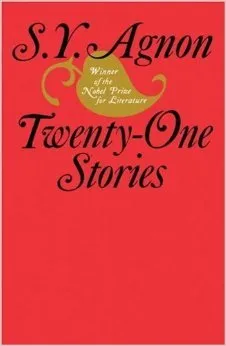Twenty-One Stories
By (author): "Nahum N. Glatzer, S.Y. Agnon"
ISBN0805203133
ISBN139780805203134
AsinTwenty-One Stories
Original titleTwenty-One Stories
Agnon's short stories reveal him in a different light from the long novels: his modernity is more obvious (as in the two divorce stories, "Metamorphosis" and "The Doctor's Divorce"); his concern with the helpless, non-heroic man presents itself in clearer focus. The novels are (at least on the surface) quiet, orderly compositions and carry an aura of simplicity. In the short stories, especially those of Agnon's later years, content and form, theme and style alikec onvey the message of enigma and paradox, and of goals perceived, intuited, but rarely, if ever, reached ("A Whole Loaf," "Fernheim"). Home is no longer a natural, secure enclosure for a man and his kin ("The Kerchief," "Friendship"); such security is but a faint hope. time is no longer a reliable measurement of past, present, and future; man is lost in the whirl of disconnected moments ("The Night," "The Letter"). The first four stories of the selection present Agnon's earlier style where the Jewish traditional background predominates. In the rest of the stories - especially those taken from his Book of Deeds (or Book of Happenings) - Agnon speaks as a highly modern writer concerned with issues that beset, burden, and provoke contemporary man. "When I look at the words of the pages of the past and see that of all our treasures only the memory is left us, I am filled with sadness." Thus Agnon describes one of the elements of his creativity. But he i more than a cultivator of his people's sacred memories. He is sensitive to the condition of man - his loneliness, his homelessness, his doubts - and to the remnants of hope that allow him to hold on to life and endure.

